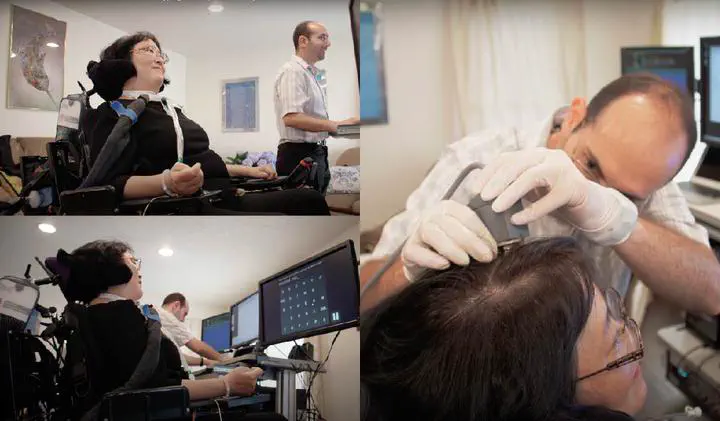Postbac: Clinical Neurotechnology Research Assistant (CNRA)

Description
We invite qualified applicants to join our team as a Clinical Neurotechnology Research Assistant (CNRA), to develop and test intracortical brain computer interfaces (iBCIs) with people with paralysis.
We seek a motivated and responsible individual with an interest in neural engineering and medicine to join a multidisciplinary team of scientists, engineers, and physicians in the Systems Neural Engineering Lab (SNEL) that develops and tests iBCIs as part of the BrainGate2 clinical trial. Our team aims to allow people with paralysis to move and speak by decoding their movement- and speech-related brain activity in real-time.
The CNRA will sit at the front lines of cutting-edge research, working directly with clinical trial participants in their homes. They will work with engineers and scientists to develop and validate iBCI research sessions, participate in lab meetings, contribute to peer-reviewed publications, and attend relevant talks and conferences.
The CNRA will communicate with researchers and clinical trial participants and their caregivers on a regular basis. As such, strong interpersonal skills are essential. The CNRA will also champion the safety and well-being of the participants and adherence to proper study conduct.
Successful candidates will have high technical competency and be able to work with researchers and programmers to learn to use specialized software systems. The CNRA’s detailed notes and insights from research sessions are invaluable for improving the performance and user experience of the neuroprosthesis.
This position requires a minimum 1-year commitment. CNRAs gain a wealth of skills and commonly continue to medical or graduate school, industry research and development, clinical research environments, or similar roles.
Minimum Qualifications
Bachelor’s degree in Biomedical Engineering, Electrical Engineering, Neuroscience, Computer Science, or a related field. Strong background in quantitative methods is encouraged.
Ability to travel 2-4 times per week for data collection at a research participant’s home (valid driver’s license required).
Outstanding communication (both verbal and written) in the English language and interpersonal skills.
Demonstrates independent work ethic, initiative, critical problem-solving, task prioritization skills, and enthusiasm.
Ability to thrive in a collaborative program and comfort navigating a clinical environment.
Ability to coordinate activities with colleagues at multiple clinical trial sites.
Superb organizational skills.
Excellent attention to detail and ability to document research activities.
Attention to data and respecting confidentiality where appropriate.
Ease interacting with and taking direction from multiple levels including physicians, scientists, and engineers via teleconferences and/or videoconferences.
Additional Desired Qualifications
1-2 years related experience in neuroscience or electrical or computer engineering.
Familiarity with Linux / Unix command line is advantageous.
Programming experience (Python, MATLAB).
Electrophysiology research experience.
Previous photography/videography experience (for documenting research sessions).
Fluency in Microsoft Windows environments, including ability to troubleshoot simple computer problems independently.
Fluency in Microsoft Office applications (Word, PowerPoint, Outlook).
Previous experience in a research environment is advantageous.
Experience with patients in a formal clinical setting, or caring for people living with paralysis in a care-taking role.
Physical Requirements
Frequently stand, walk, twist, bend, stoop, squat, grasp lightly, use fine manipulation, grasp forcefully, perform desk-based computer tasks, use telephone, write by hand, lift, carry, push and pull objects weighing over 40 pounds.
Occasionally sit, kneel, crawl, reach and work above shoulders, sort and file paperwork or parts.
Rarely climb, scrub, sweep, mop, chop and mix or operate hand and foot controls.
Must have correctable vision to perform duties of the job.
Ability to bend, squat, kneel, stand, reach above shoulder level, and move on hard surfaces for up to eight hours.
Ability to work in a dusty, dirty, and odorous environment.